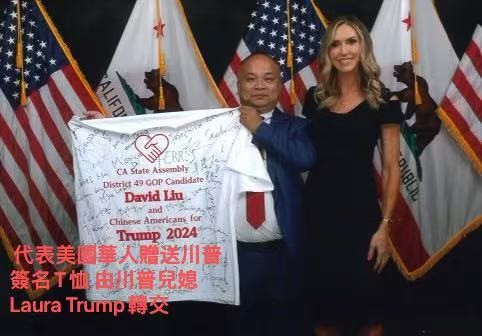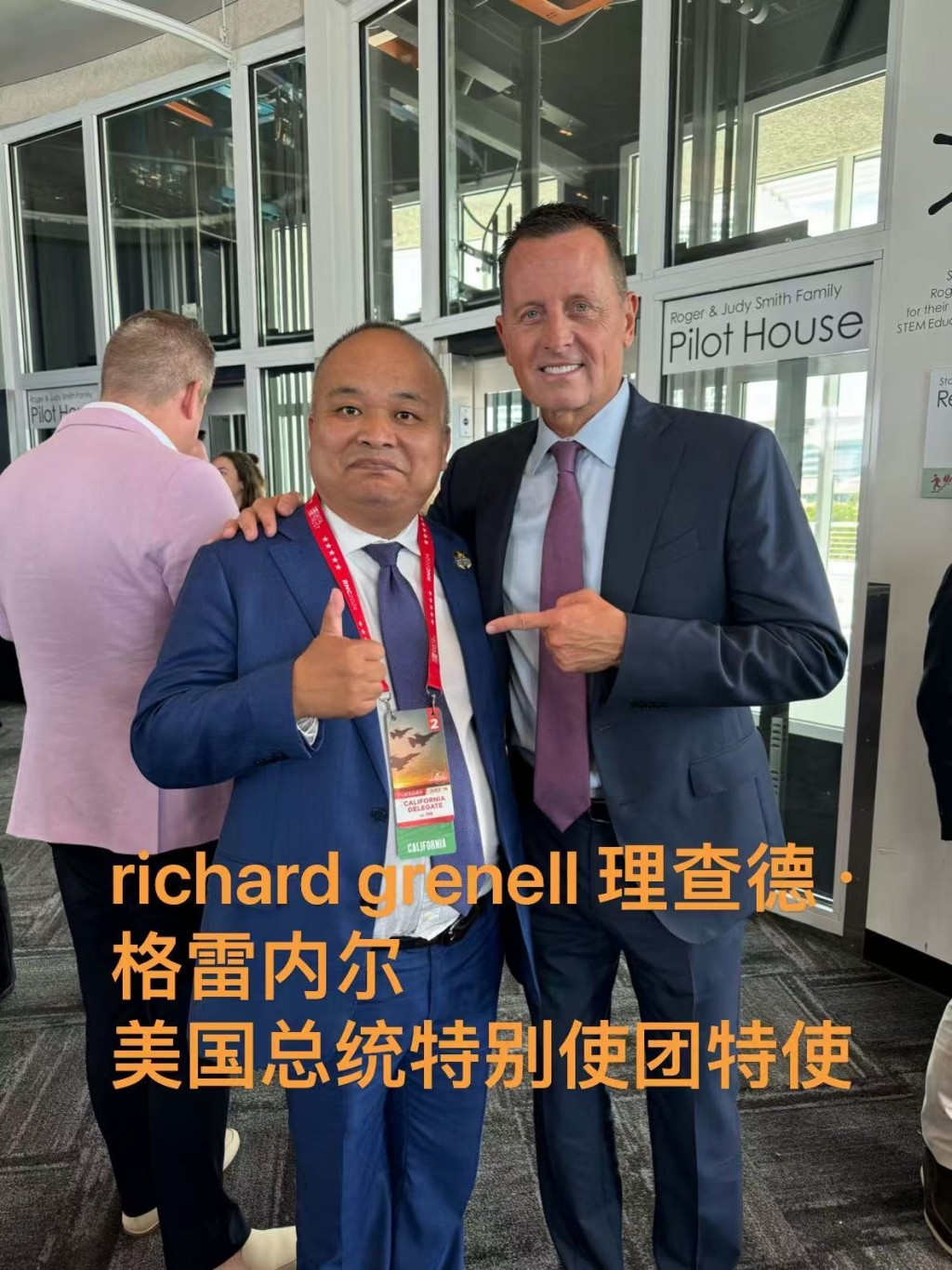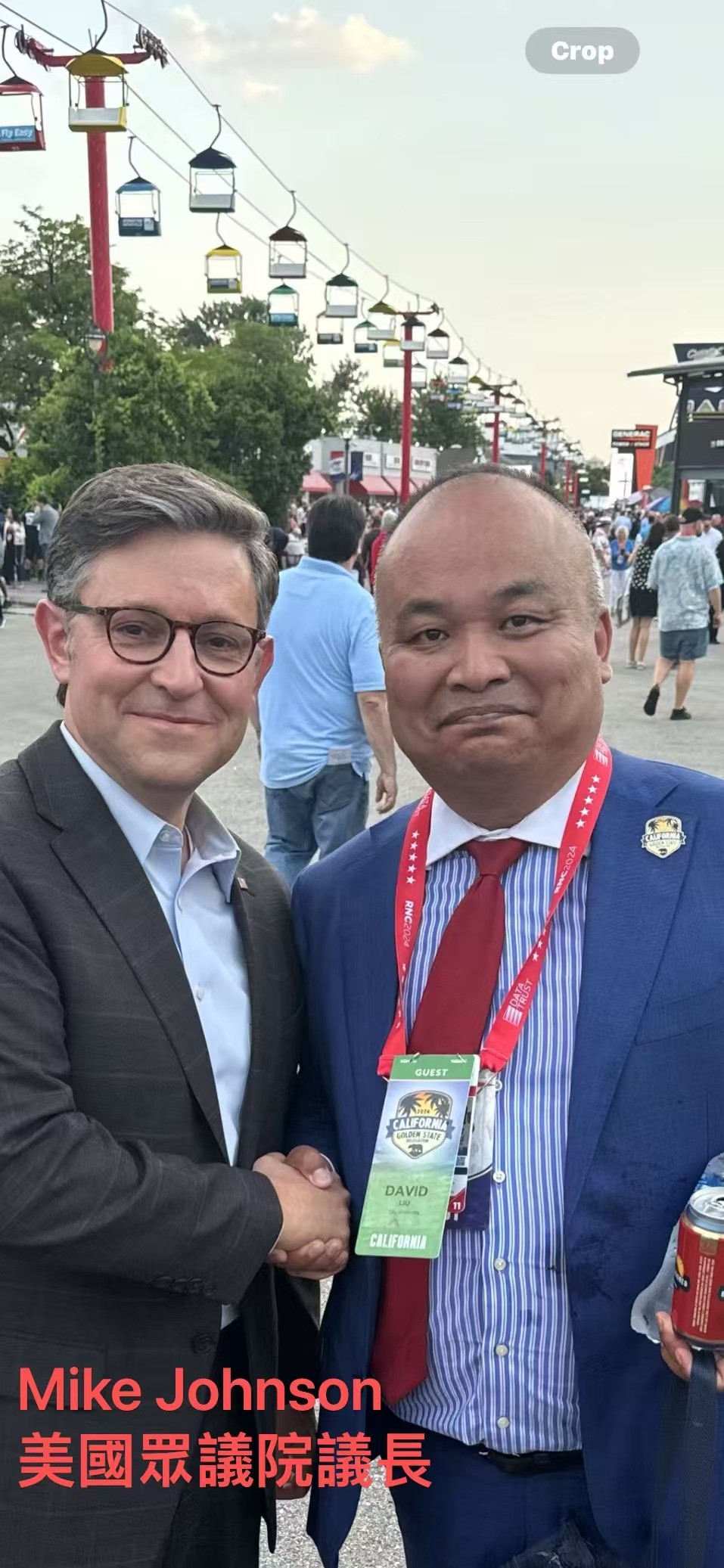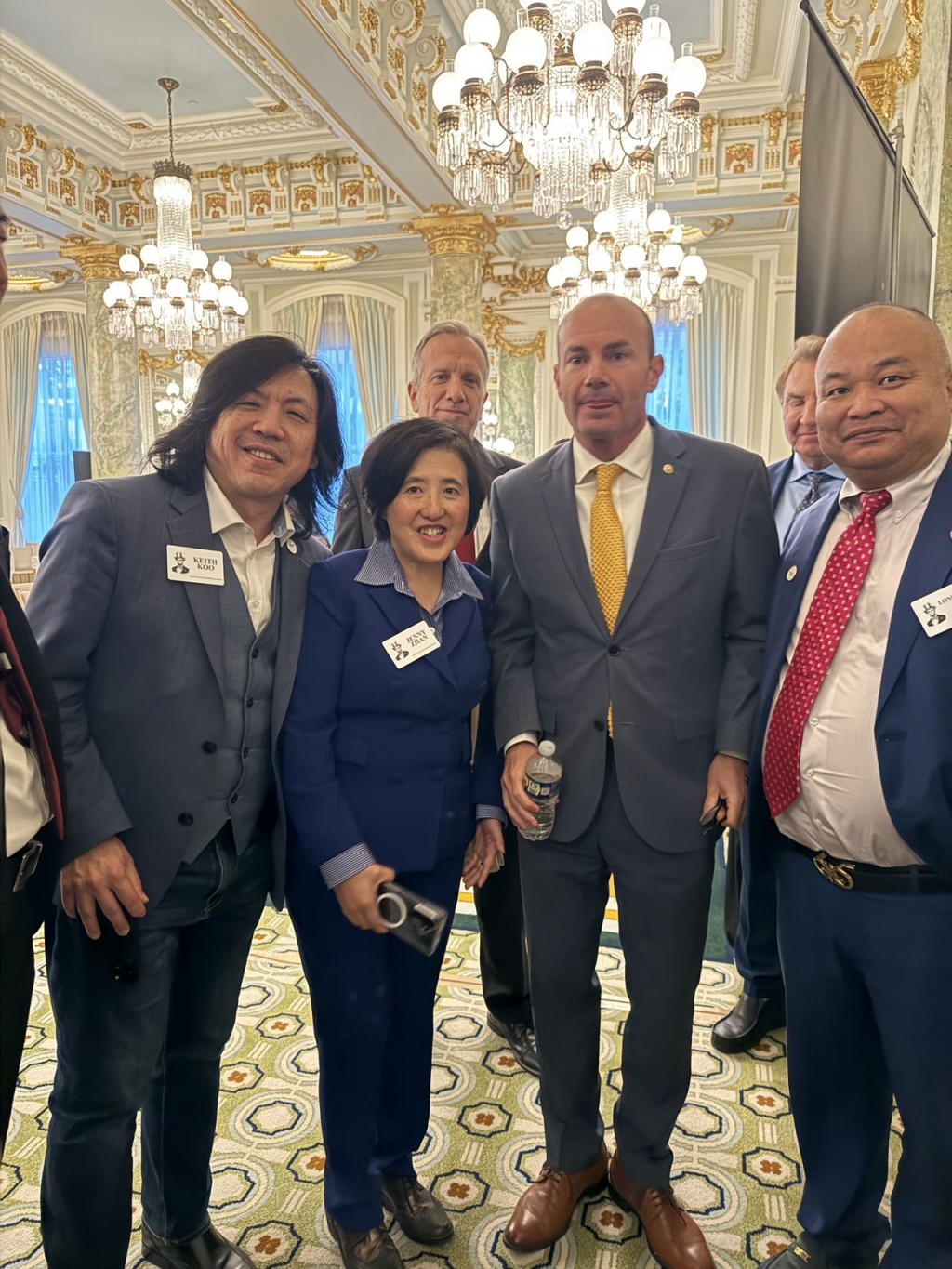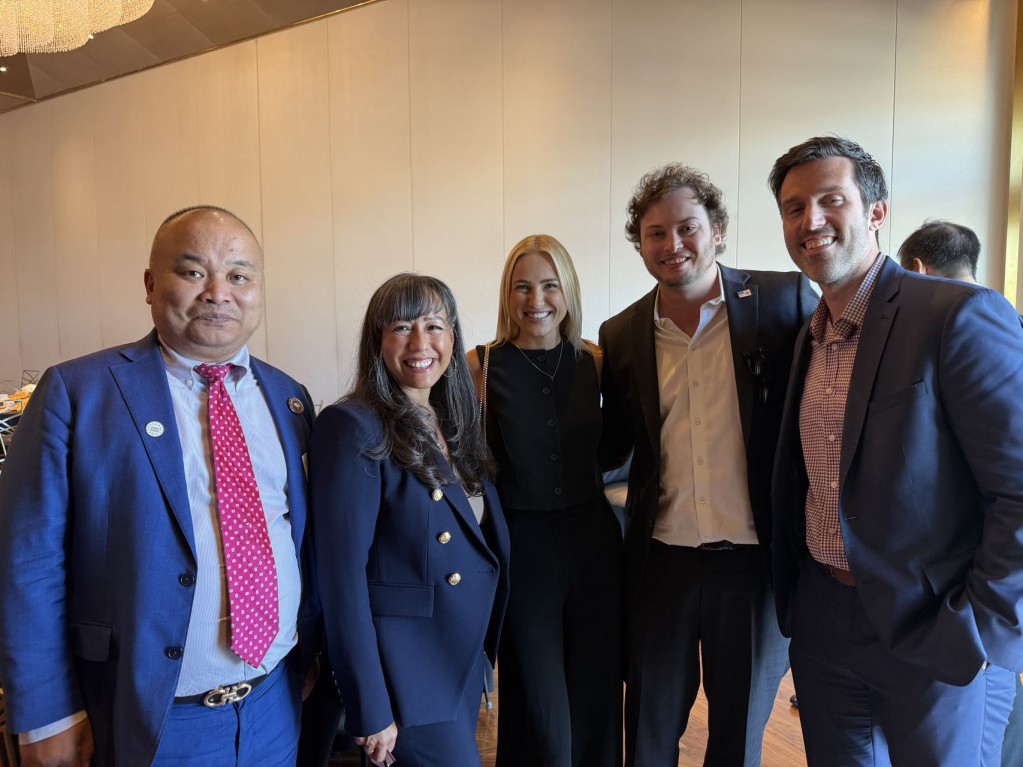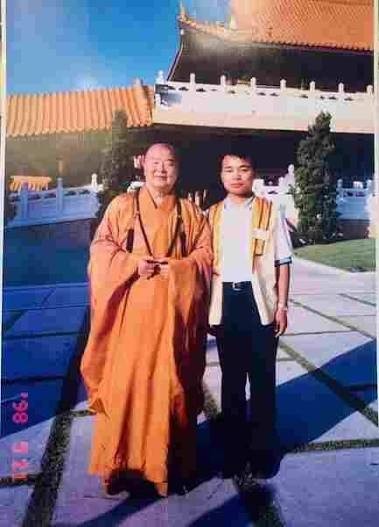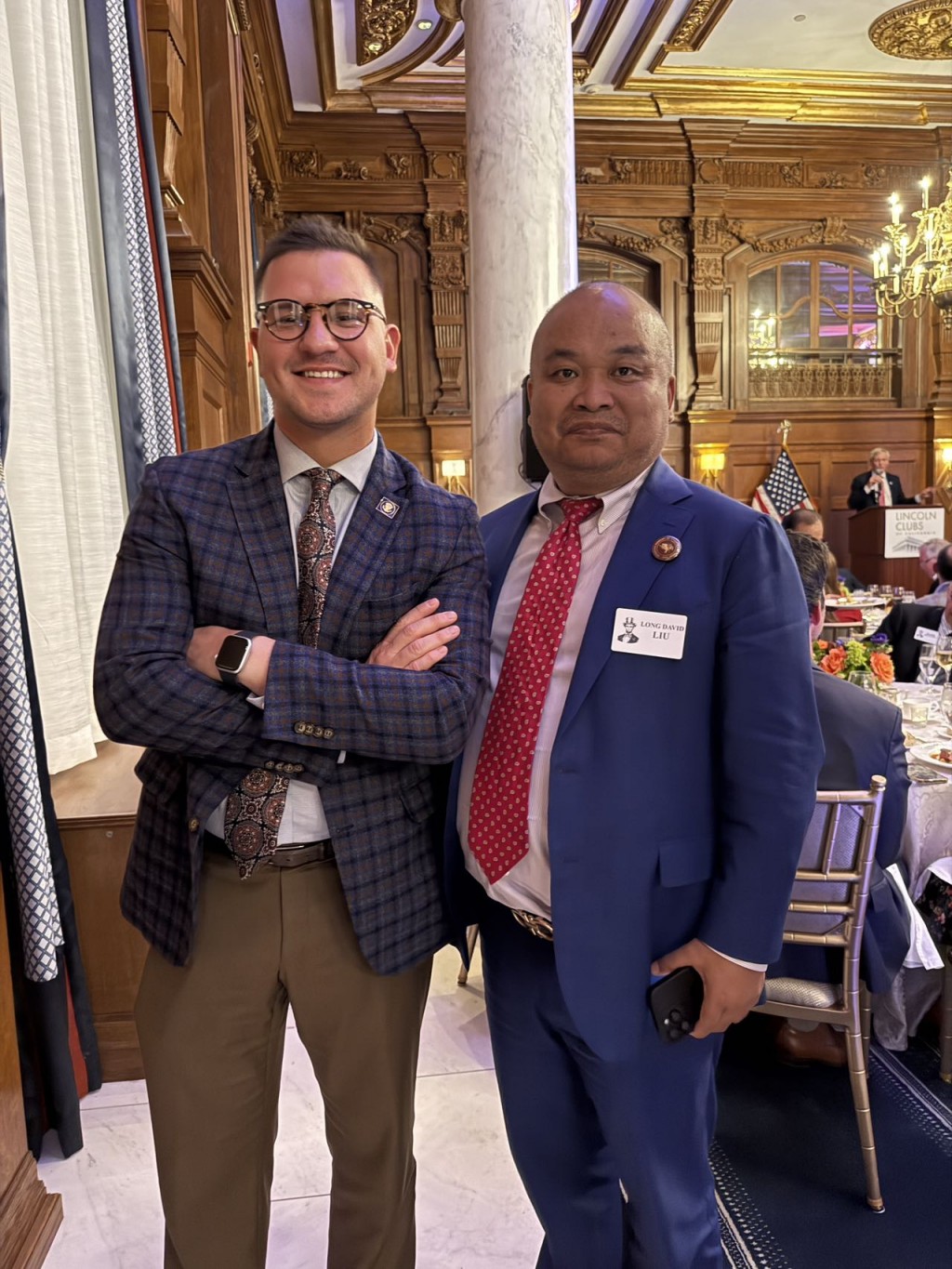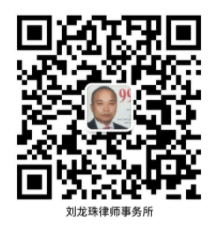- 刘强东心声:太他妈毒!要钱不给居然说我强奸! [2023/09]
- 刘龙珠律师法律评论:章莹颖家人狮子大开口要50万,涉嫌违法,可能坐牢20年! 文/刘龙 [2017/08]
- 校园枪击案每天都有,前加州副州长候选人杨承志有绝招 [2024/05]
- 白人警察杀人罪成立,拜登打电话慰问佛洛伊德家属 [2021/04]
- 劉龍珠律師法律評論:郭文貴的房產照片 [2017/04]
- 刘强东案女主微信聊天记录曝光:床单——东哥的救命稻草? [2018/09]
- 亚特兰大八亚裔女遭屠杀是缘于白男性瘾还是种族歧视? [2023/08]
- 刘强东事件惊天大黑幕 [2021/06]
- 刘龙珠律师法律评论:王宝强、张纪中、张靓颖、何洁的美国房子大对比 [2016/12]
- 刘龙珠律师法律评论:没有结婚证这张纸,张靓颖能分到冯珂的豪宅吗? [2018/04]
- 华人再也不能上哈佛耶鲁了?! [2021/02]
- 飙——美国华女一枪毙命入室歹徒 老公捡回一条命 [2023/08]
- 防老婆像防贼 会死得很惨 [2023/06]
- 劉龍珠律师提醒: 全美移民检查站在哪里,被拦下来要如何处理 [2017/02]
- 滴滴——中国最大的移动妓院 [2023/08]
- 劉龍珠律師:梁案中Glock 19手槍很難走火 [2016/02]
- 劉龍珠律師法律評論:忠言逆耳,挺梁遊行可能害梁彼得、應給非裔受害人捐款 [2016/02]
- “一哭二闹三上吊” 中美皆违法 - 霸座男女 携手去瑞典 [2018/09]
- 孟晚舟会不会被引渡最权威分析 [2021/04]
- 劉龍珠律師法律評論:赴美產婦濫用福利、現在拿不到簽證 [2017/03]
- 如果网传事件记录属实,刘强东罪名会成立吗? [2018/09]
- 龙珠喷天下——开启一条龙服务的白人拜登总统 [2021/01]
- 刘龙珠律师法律评论:卖狗肉,中国罚款5万,美国坐牢40年,玉林狗肉节必须废止! [2018/02]
- 劉龍珠律師法律評論:梁彼得,為了種族和平,你應該主動要求坐牢 [2016/04]
- 劉龍珠律師法律評論:UCLA槍擊案的啟示——憲法第二修正案應廢除 [2016/06]
- 川普和普京又要度蜜月了,如果美国真的跟中国打起来,美国华人何去何从? [2025/02]
Trump’s economic revival also reflected his view of leadership itself. He saw the
president not as a caretaker of decline but as a catalyst for growth. To him, the American worker
was not a statistic but a partner. Factories reopened, pipelines were approved, and every trade
agreement renegotiated was a reaffirmation that America’s greatness resided in its ability to
He often said that America had been taken advantage of by other nations, but what he
truly meant was that its leaders had allowed it. The problem was not foreign cunning but
domestic complacency. Trump’s business instinct told him that a country, like a company, cannot
remain competitive if it surrenders leverage. That belief shaped his trade policies and his
confrontations with China, which would become one of the defining struggles of his
administration.
For decades, the American political class had treated China’s rise as inevitable and even
desirable. They spoke of integration, cooperation, and free trade, yet behind the slogans lay an
accelerating dependency. American factories closed as production moved overseas.. Each
administration promised that globalization would enrich everyone. Instead, it enriched the few
who had the means to profit from it.Trump was the first modern president to challenge that consensus directly. He recognized
that China was not simply a trading partner but a strategic competitor engaged in economic
warfare. He understood that free trade without fairness is surrender. His tariffs and negotiations
were not impulsive acts of nationalism but deliberate efforts to restore reciprocity. By imposing
targeted penalties on nations that manipulated markets and exploited American openness, he
forced global actors to acknowledge that the United States would no longer subsidize its own
The critics cried “trade war,” but Trump’s point was that the war had already been
underway for decades. America had simply never fought back. His approach shocked both allies
and adversaries because it introduced accountability into a system that had operated for years on
unspoken corruption. The result was a recalibration of global commerce. Even those who
opposed him were forced to confront the uncomfortable truth that, for the first time in memory,
America was negotiating from a position of strength.
Trump’s trade policies reflected the same moral logic that guided his domestic agenda.
He believed that fairness is not achieved through concession but through firmness. To him,
patriotism was not a slogan. It was a principle of governance. By defending the American worker
abroad, he elevated the value of American labor at home. His confrontation with China became a
larger symbol of his presidency: an assertion that national dignity must never be sacrificed for
the illusion of harmony.
If Trump’s policies revealed his vision, his endurance revealed his character. No modern
president entered office amid such hostility or sustained so many attempts to undermine him
from within. From the first days of his candidacy, he was not treated as a legitimate politicalactor but as an interloper who had breached the walls of an exclusive system. The political class,
the permanent bureaucracy, and much of the national press viewed him not as a leader to be
covered or debated, but as an intruder to be removed. Yet despite the constant barrage, he
continued to govern. His administration became a study in perseverance. It was the exercise of
willpower as a governing strategy.
Trump’s resilience was not a product of temperament alone but of conviction. He
believed that the presidency belonged not to the political elite but to the American people who
elected him. Every attack against him, he told supporters, was really an attack against their
mandate. That belief transformed adversity into motivation. The harsher the criticism, the more
determined he became to fulfill his promises. He turned opposition into proof of his authenticity
and argued that the louder the establishment screamed, the closer he must be to real reform.
His relationship with the bureaucracy was especially fraught. Washington’s permanent
class, the unelected officials who populate the federal agencies, had long assumed that presidents
come and go but that they remain. Trump challenged that assumption. He questioned budgets,
dismantled regulatory boards, and issued executive orders designed to curb the power of career
administrators who viewed themselves as guardians of the state rather than servants of the
public. Many resisted him openly, leaking documents and sabotaging directives. Yet each act of
defiance only reinforced his determination to expose the system he called the “deep state.”
Trump understood that entrenched institutions rarely surrender power voluntarily. They
hide behind process and tradition, insisting that change must be incremental or not at all. He
found that attitude intolerable. To him, delay was simply another form of corruption. He once
remarked that if a businessman ran his company with Washington’s inefficiency, he would bebankrupt within a year. That insight drove his impatience. He demanded action, reports, and
results. He measured government by the same standard he applied in business: productivity,
The conflict between Trump and the bureaucracy was, at its core, a moral struggle over
responsibility. Should authority belong to those who are elected and accountable, or to those who
are permanent and protected? Trump insisted on the former. He believed that power without
accountability is tyranny in disguise. In pressing this point, he revealed a truth that many
Americans had long suspected but few presidents had dared to articulate. Much of the federal
government operates independently of democratic oversight.
Even within his own party, Trump often found resistance. Many Republican leaders
valued stability over disruption and consensus over confrontation. They worried that his style
would damage the party’s image. Trump viewed such caution as weakness. He did not believe
that politics was about image; he believed it was about purpose. He was willing to stand alone
because he trusted that results would vindicate him. His self-reliance became both his armor and
his isolation. Yet it also became the foundation of his leadership. He believed that conviction
itself is a strategy.
If the bureaucracy was his internal adversary, the national media was his external one.
From the beginning, coverage of Trump was dominated by hostility. Every statement was
dissected for scandal, every policy framed as cruelty, and every success ignored or minimized.
The media’s obsession with his personality obscured the substance of his presidency. What many
journalists could not understand was that Trump’s communication style was not a flaw of
discipline but a deliberate act of authenticity.He spoke as he thought and thought as he spoke, without the filters that usually sanitize
public language. To millions of Americans, this directness was refreshing. They had grown
weary of carefully s**ted politicians who said everything yet meant nothing. Trump’s bluntness
signaled honesty even when his phrasing offended. His supporters saw in him a rare kind of
The press interpreted this as aggression. They called it reckless and authoritarian. Yet
Trump’s confrontation with the media revealed a deeper cultural transformation. It exposed the
loss of trust between ordinary citizens and the institutions that claimed to inform them. By
challenging reporters in real time and labeling certain outlets “fake news,” he broke a
decades-old taboo. He reminded Americans that journalism, too, is subject to bias and error. His
battle with the press was not only about himself; it was about the right of citizens to question
those who shape their perceptions of reality.
The conflict reached its height during the COVID-19 pandemic. When Trump referred to
the virus by its geographical origin, calling it the “Chinese Virus,” he was accused of racism and
xenophobia. Yet his language reflected a straightforward statement of fact: the virus originated in
China. The outrage that followed illustrated the degree to which public discourse had become
governed by sensitivity rather than truth. For Trump, refusing to name the origin of a crisis for
fear of offending was not moral restraint but moral weakness. He believed that clarity was the
In his view, the media’s greatest failure was not hostility but hypocrisy. They claimed
objectivity while functioning as political actors. They celebrated dissent when it favored their
side but condemned it when it came from him. Trump’s clashes with reporters were notspontaneous tantrums but symbolic performances of accountability. Each confrontation
dramatized the broader tension between a populist president and an elite information class. His
supporters saw a man who fought not only for policy but for the right to speak plainly.
Trump’s approach to communication transformed the presidency into a direct dialogue
with the people. Through social media, he bypassed traditional intermediaries and spoke to
millions without editorial interpretation. It was both revolutionary and risky. By changing the
hierarchy of information, he empowered citizens to think independently but also exposed himself
to scrutiny. Still, he preferred that danger to the suffocating safety of controlled messaging. He
understood that leadership requires exposure.
The intensity of media opposition inadvertently strengthened his movement. Each attack
confirmed the narrative of an outsider besieged by an establishment terrified of losing power.
Every headline predicting his downfall became a rallying cry. He turned criticism into currency
and outrage into momentum. The more the press sought to isolate him, the more millions felt
personally identified with his struggle. He became not just a president but a symbol of defiance.
He was the living proof that an individual could still challenge the institutions that claimed to
define truth itself.
What ultimately distinguished Trump was his endurance. It was the refusal to yield to his
fatigue and the public’s ridicule. He faced legal investigations, impeachment trials, and constant
scrutiny. Yet each ordeal seemed to renew his will to succeed. His schedule was relentless, and
his energy was unflagging. He traveled, negotiated, and signed orders with the same intensity in
the final year of his term as in the first.His endurance came from a simple conviction: courage is contagious. If the president
could withstand the storm, so could the nation. He wanted Americans to see in him not
perfection but persistence. He believed that perseverance itself was moral, that the act of
standing firm in a hostile environment was proof of purpose. His leadership taught that moral
authority arises not from pleasing others but from enduring for them.
Trump’s presidency therefore cannot be understood solely as a series of policies or
controversies. It was an assertion of willpower as a moral force. He governed by motion, by
decision, and by relentless engagement with reality. In a culture saturated with performance, he
reintroduced the discipline of work. Where others measured leadership by tone, he measured it
by impact. His endurance became the moral of his story. It showed that faithfulness to one’s duty
matters more than the comfort of approval.
Trump’s presidency forced America to confront an uncomfortable truth. For too long, the
nation had confused civility with virtue and politeness with morality. The capital city had
become a theater in which manners replaced merit and optics outweighed outcomes. Trump tore
down that stage. He did not play the part of a statesman because he believed the performance
itself was dishonest. He reminded the country that a leader’s first obligation is not to appear good
but to do good, and that appearances mean nothing if they mask inaction.
In this sense, his legacy transcended policy. He redefined the moral expectations of
leadership. He taught that courage, not consensus, is the foundation of integrity. To act decisively
while being ridiculed, to make difficult choices when compromise would be easier, and to stand
by one’s convictions even when the cost is isolation became the new markers of authenticity. Heunderstood that greatness is not granted by the applause of others but earned by the persistence to
The cultural implications of this philosophy extended far beyond Washington. Ordinary citizens
saw him as a reflection of their own frustrations. For years, they had watched institutions from
government to media, from corporations to universities hide from responsibility in favor of
reputation. Trump’s bluntness exposed everything. He reminded Americans that progress does
not come from social approval but from individuals willing to act while others hesitate. His
movement was less a political phenomenon than a cultural awakening. It was a rediscovery of
agency in a society that had been taught to apologize for its strength.
To his supporters, Trump embodied a distinctly American archetype: the builder who
refuses to quit, the entrepreneur who takes risk, and the fighter who does not wait for permission.
In his unapologetic energy, they recognized a moral code rooted in the nation’s founding spirit.
To his critics, that same energy seemed abrasive or chaotic. Yet the very qualities that offended
the political establishment were the ones that rekindled the public’s sense of self-determination.
He proved that democracy thrives not through polite consensus but through active engagement.
Trump’s moral message was simple but profound. Leadership is not about words; it is
about consequences. A government that promises prosperity but delivers dependency is not
compassionate but corrupt. A society that silences truth in the name of civility is not kind but
cowardly. His presidency challenged America to measure itself not by intentions but by
achievements. He demanded accountability from institutions that had long escaped it and from
citizens who had been conditioned to expect too little from those in power.This moral realism shaped every aspect of his governance. He viewed laws as meaningful
only when enforced, treaties as valuable only when honored, and promises as sacred only when
fulfilled. He judged others not by their sentiment but by their performance. His critics called this
transactional, but he saw it as principled. To him, moral leadership meant delivering tangible
results that improved people’s lives. Empty sympathy was easy; effective service was rare.
The controversies that followed him were not simply political disputes but manifestations
of a deeper conflict about the meaning of truth itself. Trump’s America was a place where the
blunt statement of fact could be labeled hate speech and where unfiltered honesty was considered
a provocation. By refusing to speak in euphemisms, he forced the nation to confront realities it
had avoided: the failures of globalization, the corruption of bureaucracy, the fragility of borders,
and the arrogance of unelected power. He believed that truth unspoken becomes falsehood
accepted. In that belief lay his moral seriousness, though many mistook it for hostility.
In the end, Trump’s leadership offered a moral challenge to the American people. He
demonstrated that action requires risk, that results require confrontation, and that comfort breeds
decay. He reminded citizens that democracy is not a spectator sport but a daily act of
participation. His presidency exposed the gap between what America claimed to be and what it
had become. By closing that gap through relentless effort, he restored to politics the one virtue it
had lost: responsibility.
Trump’s legacy also lies in the kind of courage he inspired. His example emboldened a
new generation of leaders and citizens who understood that strength does not contradict
compassion, that patriotism is not prejudice, and that realism is not cynicism. He proved that one
can love a nation fiercely while demanding more from it. Under his watch, the language of defeatwas replaced by the language of resolve. His message was consistent. America’s best days are
not behind her, but they will not return through hope alone. They must be built, piece by piece,
by people who act.
History will debate the successes and failures of his administration, as it does with all
presidencies. Yet beyond those debates lies a more enduring truth. Trump reminded America that
the measure of a leader is not how gracefully he speaks but how faithfully he works. He left
behind a vision of leadership that values duty over decorum, results over rhetoric, and conviction
over consensus. In a time when words had lost their meaning, he restored the power of action.
His moral legacy can be summarized in one idea: to walk the walk is the highest form of
honesty. Every citizen, every public servant, and every generation will face the same test to act
upon the values they preach. Trump’s presidency embodied that test in real time. He refused to
retreat or to apologize for strength. He governed as if the nation’s fate depended on motion, and
As the nation looks ahead, his example endures as both a challenge and an invitation. It
challenges future leaders to match deeds with declarations and to measure success by service, not
popularity. It invites citizens to believe once more that their actions matter, that courage is still
possible, and that the country’s destiny remains in their own hands. The story of Donald J.
Trump is, in the end, the story of America’s most essential truth: greatness is not inherited,
granted, or spoken into existence. It is built through effort, persistence, and fai in the power of
action.


